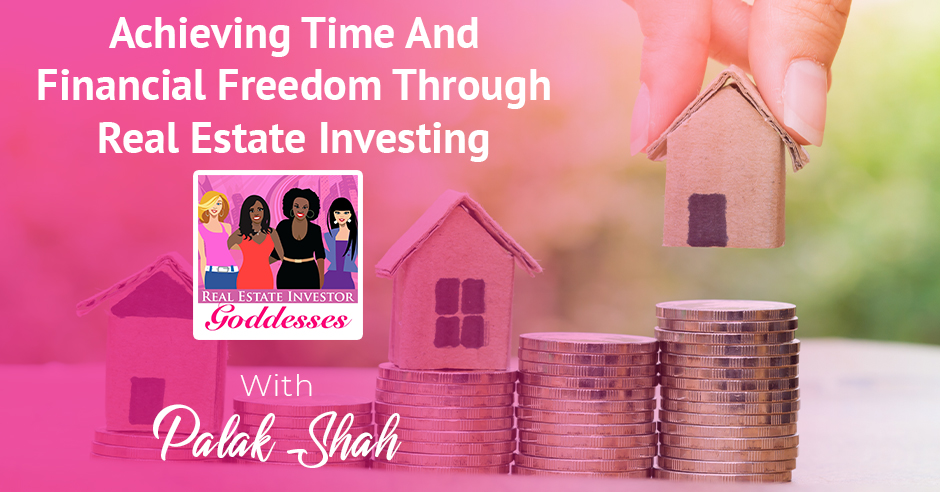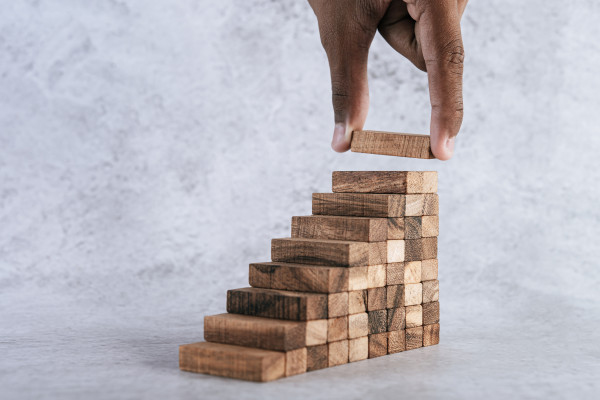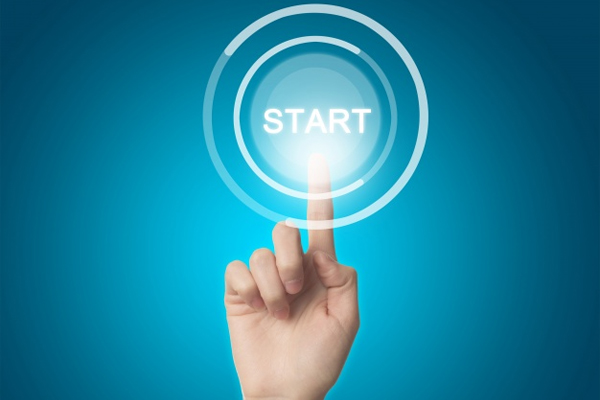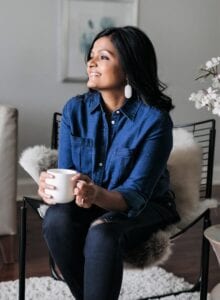
In this episode, you’ll discover how you can achieve time and financial freedom in real estate. Monick Halm’s guest today is Palak Shah, founder and Managing Partner at Open Spaces. Palak explains that the higher up you go in your career, the lesser time you have for your kids. She eventually decided to quit her job and invest in real estate to have more time with her family. Guess what? She created a $4 million rental portfolio! Tune in to find out how Palak achieved such huge growth in very little time. You don’t want to miss this episode!
—
Watch the episode here:
Listen to the podcast here:
Achieving Time And Financial Freedom Through Real Estate Investing With Palak Shah
On this show, I interview amazing, incredible bad-ass women, real estate investors who are crushing it in the real estate space. I’m so excited to have with us our guest, Palak Shah, who is the Founder and Owner of Open Spaces Capital that generates over a $1 million in revenue. She’s an engineer by trade. After the birth of her two kids, she decided to make the move to entrepreneurship to be able to spend more time with her children. That’s the beautiful thing about real estate investing. Not only does is it abundant, it gives you money but it gives you time. She invested in real estate for many years. In her first two years investing full-time, she purchased renovated, rented and refinance properties, creating a $4 million rental portfolio. It’s a huge growth in very little time. It’s now her passion to empower other investors, to pursue entrepreneurship through real estate investing, to live an empowered and financially free life. I’m excited to have her with us. Welcome.
Thank you for having me. I’m excited to be here.
Thanks for being here. With this show, we always start at the beginning. How did you get started in real estate investing?
The biggest mistake is to not trust yourself early on. Share on XI’m a mechanical engineer, and it was something I enjoy doing. My job was to travel the world and teach CEOs of different companies the specific framework that we had created. It was nice. As women, we are shown all these images of empowered women and what they’re supposed to be like. I was drawn to this woman who can make an impact and changed things for the better, and be that jet setter. I was making good money, so that was good, but all that faded when I had kids. I realized that the higher up you move, the less time you have for your family. I was traveling, and I didn’t see them and had waited until my late 30s to have kids.
I just thought, “Is this what I worked so hard to achieved?“ All of that didn’t seem as exciting because the way I was spending my time was great for my career, but then it didn’t leave any room for personal life and for kids. After spending months and months in turmoil, my husband and I decided to become a single–income family. I decided I was going to quit my job and start investing in real estate. I still wanted to make an impact, so I wanted to grow our real estate portfolio while spending time with kids. Real estate is amazing. It’s amazing for that. It’s been an incredible journey.
I resonate with your story, especially with the time. I wasn’t an engineer, but my parents told me, “You can be anything you want, as long as you’re a doctor, lawyer, professor engineer.” I wasn’t into the math and sciences. I didn’t go to engineering. I was like, “I’ll do law,” but it was still very similar, a lot of long hours. It felt like a pie–eating contest where the prize was more pie. The pie was not very good for me. You’re just working so much, then it was like the more I moved up, the more I worked, and I was untenable. I think a lot of people, especially women, can resonate with that. I used to work like an animal. I definitely resonate with that. What did you first invest in? What was your first deal?
When I still had my full-time job, we explored the idea of real estate investing, and we decided to invest in a rent-ready rental. It was easy. I shouldn’t say easy. It was more straightforward, what I ended up doing, but it was a good way to get my feet wet to dip my toes in the water and see if real estate investing is something I even like doing. What we did was we invested in a rent–ready rental, we figured out what it meant to own a profitable rent–ready rental. We did that a few times and built up some passive cashflow, and then I realized this is something I can do. This is something I’m going to grow, and that’s when I decided to quit my job. Single–family home, three–bed, one–bath, simple rent-ready rental. That’s how I got started.
Were they turnkey properties? Was there already a tenant there or you got it just ready to go, and you had to find your own tenant and self-manage?
It was a flip that someone was doing. It wasn’t a turnkey property. It was just a property flip that didn’t need a lot.
A flip that was ready to throw in a tenant and start cashflowing right away. What market are you investing in?
When we first started, we were investing in a specific neighborhood in Philadelphia. At this point, that neighborhood was an up-and-coming neighborhood. It has up and come now already, so now we moved out to some other neighborhoods, but we’re still in Philadelphia.
You went to do the entrepreneurship route, and you quit your job. What did you start investing in then? Are you still the same single-family? What did you do when you went full-time?
I started with the bar strategy, so that’s what we do. We started with a single–family home, so value–added investing. For anyone who’s reading who doesn’t know what the strategy is, you buy a distressed property, renovate it, rent it out, also known as stabilizing it and then refinancing it, pulling all of the money you originally put in it out and reinvesting it in the next asset.
For those of you reading, this is like recycling money. To build a portfolio, you take the same amount of money. You use it, then you reuse it again, but then you’re leaving behind these cashflowing properties.
It’s a great strategy. It’s difficult to master but it’s a good strategy. It hasn’t been done for decades. I think David Green called it getting a black belt in real estate.
You need the numbers because it has to have enough of the margin. You buy it at a good enough price, fix it up. These would be enough of a spread so that when it’s fixed up, and you refinance, you can actually pull out enough money.
You are going to figure out construction, figuring out tenants, financing and all of that. We started with single–families, and we still do some single–families, but what we did was we really took a template, and I ran with it and figured out a template that I could replicate again and again and built systems and processes around it. I can do multiple of those at the same time. We also do smaller multis, so between 2 and 4 units. We closed on a fifteen-unit deal. We’ll do all different things but within this specific strategy.
I can see your engineering brain at work creating those systems, and that’s when it’s really good. That‘s a super logical person. That’s like, “How can I make a system around this that‘s better?” That’s great. Switching gears a little bit. I love your story. It’s very inspiring. It’s also very doable for people to start doing it that way, especially if you’re in a market that’s not too terribly expensive. What was your biggest mistake and what did you learn from it?
The biggest mistake I made is not trusting myself early on, and I think a lot of women, we aren’t given the tools to trust ourselves for some reason. It took me incremental steps to build up to the point where I could start making major financial decisions on my own without needing anyone’s approval and or somebody to bless it. It took a while to get to that point, and I think it could have been much faster. I remember one of my jobs, my boss said to me during performance reviews at the end of the year. He had said, “The one thing I would like you to work on is understand that you know more than you think you know.“ As I’ve built up to the point where I can do a $1 million deal on my own, I’ve learned that this could have been done much sooner had I trusted myself. That’s the biggest mistake I would say that I’ve made. It’s not having that trust in myself early on.
You didn’t do the deals you could have done or go as big as you would have otherwise if you’d had that trust.
Build it up faster. I could have done it much faster if I had trusted myself
What are you most proud of?

Time And Financial Freedom: Figure out a template you can replicate again and again and build systems and processes around it.
My husband actually quit his job in July 2020. It all started with making one decision that was going against the grain and going against everything. We all have been taught when we’re growing up about going to school and all of that. It all started with that 1, 2, 3 and get to JS, all of that. I’ve been in real estate now full-time for years, and our portfolio is worth about $6 million right now. When he quit his job, that was a proud moment for me because I hadn’t imagined that would ever happen. If you’d asked me years ago, I would not have said we were going to both be full-time in real estate.
You could replace your income and do that. That’s amazing. You’ve got financial freedom. What do you attribute your success?
It was that one decision that I made about quitting my job. That was a huge thing. That was really the biggest risk I ever took. I was making six figures and walking away from that salary, a career that I had built for seventeen years. I was raised by a single mom, so when I told her I was going to quit my job and she’s a feminist and she’s like, “This is not what I worked so hard to raise you by myself so that you could quit your job and then not care about your future.” I was like, “No, mom. You don’t know what I’m talking about. Let me finish. I’m going to start my own business. I’m going to start investing in real estate.” That was the one decision I made that was 100% mine. It was a huge financial decision. The one thing I would attribute to my success is over time, learning how to listen to myself. There are many amazing women around us who empower us and who are saying this to us. It’s a matter of listening to them and following their advice and learning how to listen to ourselves and making that one bad decision, making that one choice, and then everything gets easier after that.
Trusting that intuitive voice inside. That’s hard for a lot of people, but it’s everything. It’s been behind my every success, and not listening to it has been behind my every failure. What advice do you have for a woman who’s just starting out in this field?
If you’re a woman starting out in this field, what this is going to need is for you to start making major financial decisions for yourself and for your family. The sooner you get comfortable with the idea that it’s about time that women start making these big financial decisions without needing that approval from the boss or whatever you want to get approval from, the better it is for all of us. Not just for women, it’s better for our families. It’s better for the men in our lives. It’s going to be great for society. If you’re getting started, the faster you get comfortable making these major financial decisions, the better it is for all of us.
To follow up with that a little bit in terms of what you factored in, you went from two incomes to one, so there was still your husband’s income. Plus, you had a few rental properties that were already cashflowing. I know it was a big risk to lose it, but I’m assuming you had your expenses covered otherwise when you quit or not, or did you? What was that calculation you took when deciding, “I’m ready to make this jump?”
You can start with the very simple calculation. Think about how much cashflow you could have from a single rental and take–home salary is. I’m going to explain why we talk about what take–home salary is, and then take the ratio of those numbers to figure out how many rentals you make to retire. The formula is overly simplified. There are all these other factors and go into it, but the reason we say take–home salary is because the cashflow on the rentals, that’s your profit. The taxes on that are going to be offset by depreciation for the most part.
You can truly compare your take–home salary to the cashflow from rentals. Start from that very simple formula. The way I thought about it was I got a bonus every year, I was putting money in 401(k), so you can then expand that formula. We started expanding that formula and we were like, “We can put money towards 401(k), but we’re not building any assets. Let’s think about what building assets is going to get us in terms of financial impact.“ I got a bonus every year and when I looked at it, I was like, “Would I be willing to give this up for being able to just have that freedom and spend time with my kids?”
It’s about time that women start making big financial decisions without needing approval from anyone. Share on XThere is a deficit and I had a deficit when I did my calculations. I was like, “Is giving up that much money going to be worth the potential of taking this step?” You can take a simple formula, expand it and then if there is a deficit, figure out, “Is it worth taking that or do you want to keep your job until you can cover more of that deficit?” Some of my calculations were wrong. I thought I was going to wash my kids 100% full-time by myself while I started and ran this business. In the end, I realized that it’s not doable. It would require superhuman abilities.
Some time is needed for active real estate investing.
I ended up hiring a mother’s helper early on, so I hadn’t accounted for some of those expenses and still worked out okay. None of these things that we predict are going to be 100%, but it gives us a point to start.
What do you wish you’d known at the beginning that you now know?
When I first started, I honestly did not truly understand the impact of long-term buy and holds. I understood it in theory, but as we’re holding onto properties for longer-term, the growth is absolutely exponential. It’s not linear. In the beginning, it seems it starts slowly, but as you grow, it’s just the impact of owning assets, and growing can be amazing.
Before we get into our famed end-of-show trinity, what is the best way for our readers to connect with you?
The best way is you can either follow me on Instagram, @OpenSpacesWomen, or you can join. We have a free Facebook group called Real Estate Investing for Busy Professionals. You can join that group. We go live in their group every week or every other week, something like that. Join our group. It’s a fun place. It’s free. Those are the two best ways.
Now it’s time for our famed end to show trinity, which is a brag, a gratitude and a desire. What is your brag?

Time And Financial Freedom: None of these things that we predict will be 100% true, but it gives us a point to start.
It has to be being able to get to a point where both my husband and I are financially free because it’s so recent. I’m excited about that.
What is one thing you desire?
I really would like to make a bigger impact in this world. I think that it’s about time more and more women start building wealth for themselves and for their families. I want to make a bigger impact, and I want to change the way women are investing and feeling comfortable with finances. That would be my desire.
What is one thing you’re grateful for?
I have a health coach who asks me that question every day, and one of the things that I always tell her is my kids. That’s what always comes to my mind. It’s being able to spend time with my kids. That has to be something I’m grateful for. Not always pretty, but I’m still grateful for it. It is the best thing ever.
Thank you so much for being on the show. That was incredible. You all, if you want to connect with Palak, you can find her on Instagram, @OpenSpacesWomen.
Thank you so much for having me.
You’re welcome. You can connect with me at REIGoddesses.com. There you can find out about our investor club, get into our amazing sisterhood community on Facebook and find out about our upcoming events and trainings. Thanks again.
Thank you.
Important Links:
- Open Spaces Capital
- @OpenSpacesWomen – Instagram
- Real Estate Investing for Busy Professionals – Facebook group
- Facebook – Real Estate Investor Goddesses
About Palak Shah

Palak Shah is the founder and owner of Open Spaces Capital that generates over $1M in revenue. An Engineer by trade, after the birth of her two kids she decided to make the move to entrepreneurship to be able to spend more time with her children.
Though Palak has invested in real estate for many years, in her first two years investing full-time, she purchased, renovated, rented, and refinanced properties creating a $4M rental portfolio. It is now her passion to empower other investors to pursue entrepreneurship through real estate investing to live an empowered and financially free life.
Love the show? Subscribe, rate, review, and share!
Join the Real Estate Investor Goddesses Community today:





